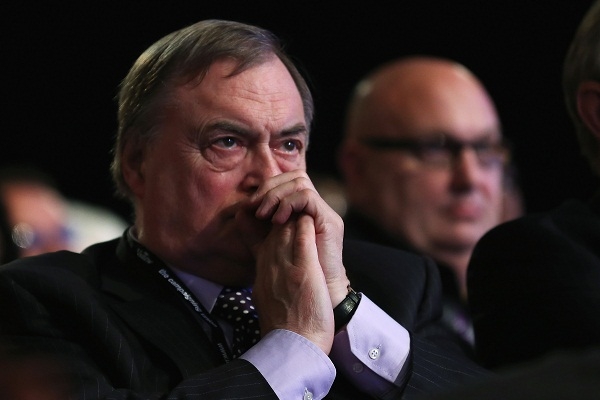More people are interested in low turnout than turned out to vote at yesterday’s PCC elections; that is the story of the day so far. The figures quoted are baleful, ranging between 12 and 24 per cent (Harry Phibbs has a good guide). This makes elections to the European Parliament look popular. Indeed, one polling station in Newport took no votes whatsoever, which tells its own story.
In terms of the politics of this, low turnout is thought to suit the Tories rather than Labour because more of their voters make it to the stations in elections like these. Indeed, there are fears for Big Bad John’s effort in Humberside because Tory areas might have been more motivated than Labour ones. (UKIP and the independent candidate are also fancied.)
If Prescott’s loud campaign has failed to cut through (a claim of which I’m sceptical, because, as John Curtice points out, Humberside is a very decent prospect for Labour mathematically), what hope have PCC elections in the future? It’s a valid question, and one that the government and its acolytes have answered by saying that there will be more interest next time because candidates will have a record in office to debate, Rome wasn’t built in a day etc. It has also slammed the London-centric media for not giving the elections sufficient coverage. That may well be; but, looking at today’s figures, it’s hard to accept that the answer to voter apathy is more elections. At the end of the party conference season, I argued that Britain is beginning to suffer a crisis of democracy. Yesterday’s vote superficially reinforces that claim, although it must be said that the parties and the media did not put their full weight behind these elections – the results, therefore, make the case for greater with engagement voters.
Indeed, an anti-dote to my pessimism is the likely success of George Ferguson, the independent candidate in the Bristol mayoral vote, who is leading the election on first preferences by 33,321 to (Lab) Marvin Rees’ 25,896 votes. There are rumours that Labour is about to concede defeat. Ferguson’s likely victory marks a rare success for independent politics against the party machines – and Labour paid considerable attention to the Bristol election. Who knows, perhaps it’s the start of something: Andrew Sparrow reports that independent candidates are very well placed to win the Dorset, North Wales and Essex PCC elections. It’s a reminder that local democracy can work.
As for the Corby by-election, Labour is briefing that it expects to win by 4,000 votes on a swing of about 7.5 per cent, which is slightly below the national average according to the invaluable Anthony Wells. It remains to be seen if Labour is lowering expectations; but such a result would not be catastrophic from the Tories’ perspective. That is, of course, unless they finish behind UKIP, which is a distinct possibility according to the Westminster rumour mill: UKIP has done surprisingly well in the votes called thus far, as a glance @Nigel_Farage will prove. This might concern Tory strategists who fear that the party is insufficiently Eurosceptic.
Worse still, though, the Tories have been wiped out in Manchester, losing their deposit in the by-election, which suggests that 2015 is going to be an uphill struggle for the party in cities north of the Watford Gap, a point reinforced by its likely performance in PCC elections for the urban areas of that part of the world. From the long-term strategic perspective, this is an important upshot of yesterday’s votes.






Comments